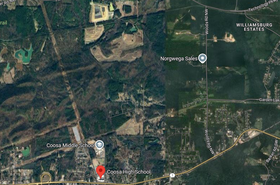The US government has announced a new emergency permitting process for energy and mining projects on federal lands. The reforms would see approval times for these projects cut to as little as 14 days, and at most 28 days.
The US Department of the Interior (DOI) said the decision was made in line with President Trump's declaration of an “energy emergency” at the start of his second term. Trump cited the soaring energy demand from the data center sector as a primary driver of the declaration, with data centers expected to consume between 6.7 percent and 12 percent of total US electricity by 2028.
In a statement, the DOI said that the emergency permitting would only apply to fossil fuel projects, geothermal power, uranium, biofuels, and kinetic hydropower, with other renewable energy projects not included.
"By reducing a multi-year permitting process down to just 28 days, the department will lead with urgency, resolve, and a clear focus on strengthening the nation's energy independence," said Interior Secretary Doug Burgum.
The DOI has claimed that it will use alternative methods to comply with environmental protection, providing no exact examples.
The impact of the reforms on fossil fuel production is debatable, with the US oil production already at record levels, and coal continuing to be phased out by utilities, despite President Trump’s recent executive order to “reinvigorate” the coal sector. In fact, according to research from Energy Innovation, 99 percent of existing US coal plants are more expensive to run than new solar or wind power, with solar at least 30 percent cheaper on average.
Solar is currently the cheapest form of energy within the US market, and often has much shorter lead times compared to other forms of energy. As a result, wind and solar energy now generate more electricity than coal across the US, according to a recent report from the think tank Ember. Solar generation across the US increased by 64TWh, wind 32TWh, while coal dropped by 22TWh.
The decision follows an order from the DOI to cease construction on Equinor’s 810MW Empire Wind offshore wind farm off the coast of Long Island. The DOI argued that the project was approved too quickly under the previous administration.
In January, the Trump administration froze approvals for wind and solar projects on federal lands and water for at least 60 days. In addition, Trump separately signed an executive order directing the Treasury Department to freeze new offshore wind leases, and directed a review of turbines' impact.
In response to the decision, environmental activists have claimed the expedited timelines will strip away local communities' ability to challenge projects being developed in their local areas.
"What they're proposing to do is basically forgo environmental review or public participation or anything meaningful," Michael Burger, executive director of the Sabin Center for Climate Change Law at Columbia University, told CBS. "The implications of that are extreme."







